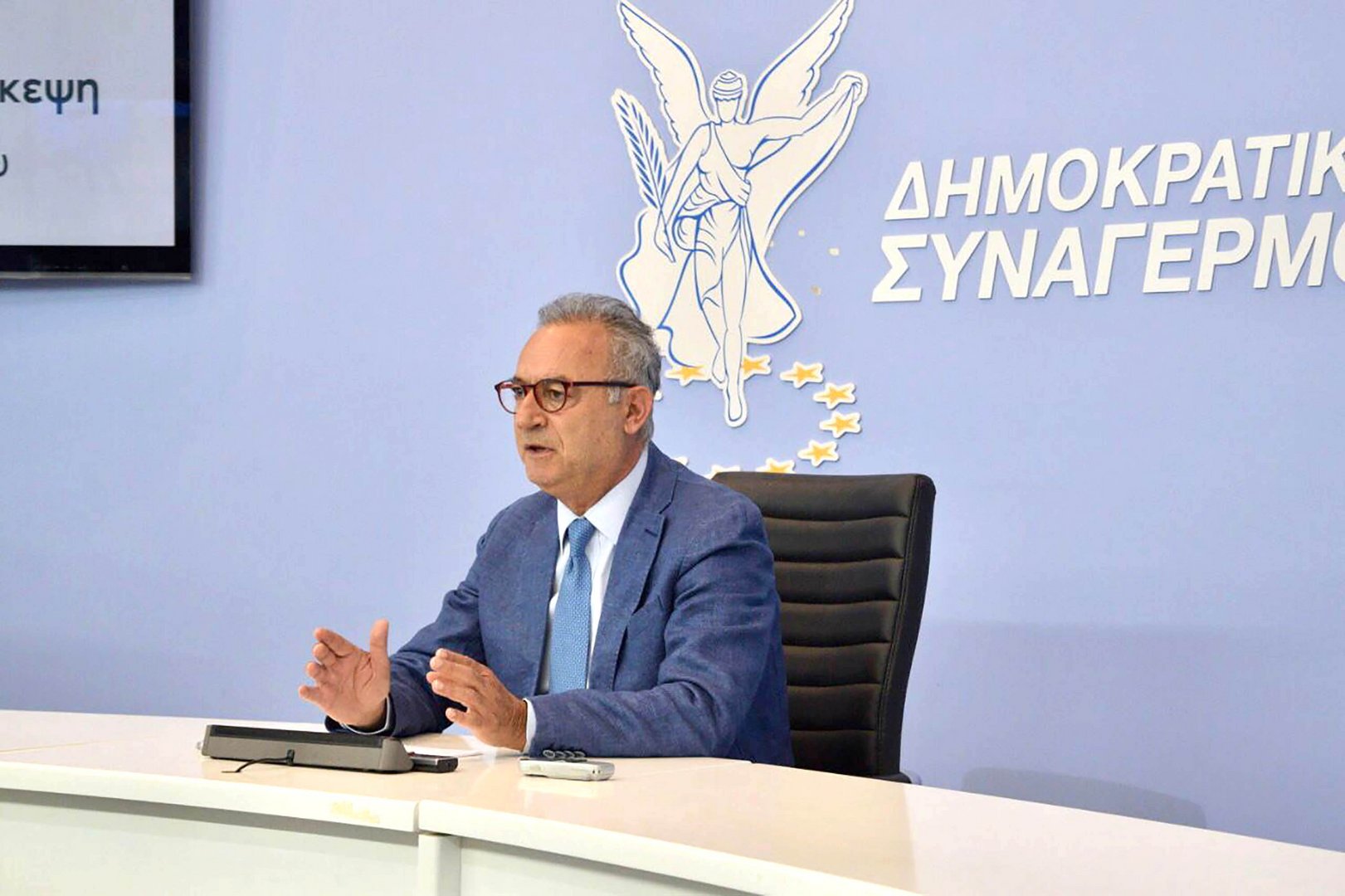His political courage and honesty are qualities in short supply on the Cyprus political scene
I was truly relieved to hear – at last – a political leader courageously raising his voice in a sea of political absurdity and populism to say what is readily apparent to any intelligent Cypriot. Disy leader Averof Neophytou made two points this week, with courage and political wisdom. The first was that the Greek Cypriots must let the Turkish Cypriots have what was promised to them a long time ago, namely “political equality and effective participation”. The second point was that it is the Greek Cypriots who should press for a solution of the Cyprus problem, as quickly as possible, because prolonging the existing situation is tantamount to a Greek Cypriot suicide that serves – in an ideal fashion – the goals and the plans of Turkey.
However, because certain unrepentant pseudo-patriots will rush to challenge the validity of the statement that the Greek Cypriots promised the Turkish Cypriots “political equality” many years ago, I set out below the unchallengeable facts:
Political equality
The UN Secretary-General’s Statement (second paragraph) on Cyprus [following the meeting in Berlin on November 25, 2019] reads as follows: “Both leaders welcomed my engagement and reaffirmed to me their commitment and determination to achieve a settlement based on a bi-zonal, bi-communal federation with political equality as set out in the relevant Security Council resolutions, including OP4 of UN Security Council Resolution 716 (1991)”.
The UN Security Council Resolution 2483 (2019) of July 25, 2019 [S/RES/2483 (2019)] (4th Preamble Paragraph) reads as follows: The UN SC … “urges the sides to renew their efforts to achieve an enduring, comprehensive and just settlement based on a bicommunal, bizonal federation with political equality, as set out in relevant Security Council resolutions, including OP4 of its resolution 716 (1991), and stresses that the status quo is unsustainable.”
The UN Security Council Resolution 716 (1991) of October 11, 1991 (fourth Operative Paragraph – OP4) reads as follows: The UN SC “reaffirms further that its position on the solution to the Cyprus problem is based on one State of Cyprus comprising two politically equal communities as defined by the Secretary-General in the eleventh paragraph of annex I to his report of 8 March 1990(S/21183).”
The eleventh paragraph of Annex I of the UN Secretary-General’s Report of March 8, 1990 (S/21183) reads as follows: “The political equality of the two communities in and the bi-communal nature of the federation need to be acknowledged. While political equality does not mean equal numerical participation in all federal government branches and administration, it should be reflected inter alia (the underlining is in the original text) in various ways: in the requirement that the federal constitution of the State of Cyprus be approved or amended with the concurrence of both communities; in the effective participation of both communities in all organs and decisions of the federal Government; in safeguards to ensure that the federal Government will not be empowered to adopt any measures against the interests of one community; and in the equality and identical powers and functions of the two federated States”.
It is appropriate to point out that the other side supports its position in favour of a two-state solution by arguing that the Greek Cypriot side has effectively set aside its commitment concerning “political equality and effective participation” as these terms were defined in the aforementioned UN documents. These are the facts today and it is on the basis of these facts that Neophytou said that the failure to honour these undertakings would be the equivalent of the Greek Cypriots committing suicide.
Invitation to Akel
In a recent call on the leading opposition party to agree on a common strategy and follow a common path on the Cyprus problem, Neophytou made a bold offer which should have been welcome by Akel. I was disappointed to hear at least one key member of Akel arguing in public that the proposal should have been made behind closed doors in a private meeting of the two party leaders. My own view on the matter is diametrically the opposite. The public stand by Neophytou underlines his political courage and his honesty, both of which are qualities in short supply on the Cyprus political scene. And this is because his public statement embodies a commitment on the part of the governing party to respect such an agreement and to implement it in practice. Fortunately, Akel appears to have revised its position and has positively responded to Averof’s invitation. I am of the opinion that the various controversial issues of the Cyprus problem must be discussed openly in public because before long the people of Cyprus will be called upon to judge and decide. A correct judgement presupposes a correct and complete understanding of all the options which will be offered. This is not a task that can be accomplished in a day or two.
The ultimate goal of Greek and Turkish Cypriots
One last issue: at the forthcoming informal talks (scheduled for the end of April in Geneva) a stop must be placed on those involved in the negotiation process on focusing (as they have done in the past) on legalistic issues of little or no practical significance. The Cyprus problem is not a legal problem. The Cyprus problem is a political problem and, as the Greek Cypriots have painfully found in the past, confronting such a problem with legal arguments constitutes a totally ineffective approach.
As I have stated many times in the past, the trust of the efforts of the Greek Cypriot side should be placed on securing the smooth functioning of a federation in a manner that would promote and support the harmonious cooperation of the two communities and would prevent Turkey from being in command in the north (and the south) of Cyprus.
Christos Panayiotides is a regular columnist for the Cyprus Mail, Sunday Mail and Alithia







Click here to change your cookie preferences